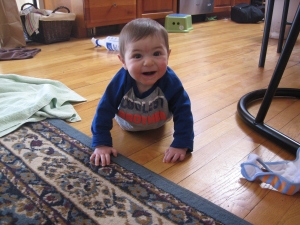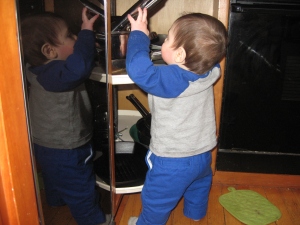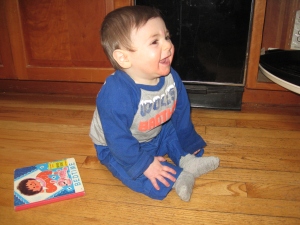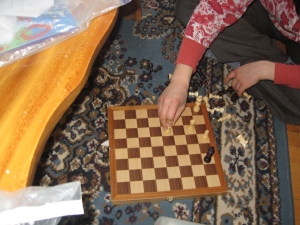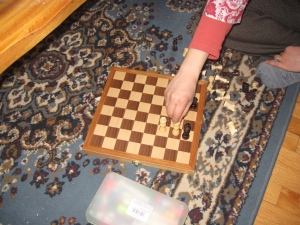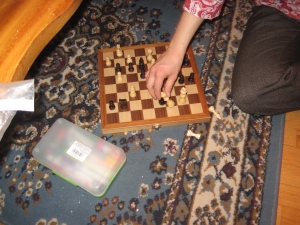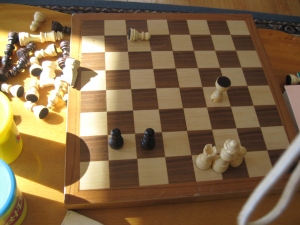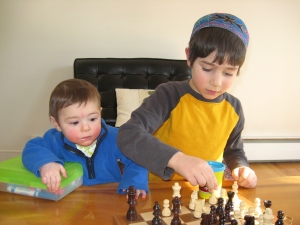It’s been just over a year since we returned to America.
It’s kind of silly, but what I remember most about this time last year is the weather. We left during a hamsin, 90 degrees (F) and dry, and arrived in Maine and it was 45 degrees and raining. That is not an exaggeration. It had been a dry winter in Israel, so I hadn’t smelled rain in months, since December. I got off the plane and the smell hit me so strongly.
Now it’s June again, and big surprise, it’s cold and rainy. We had a hot spell in May, but now the weather is exactly like it was last year at this time.
I’m sure I’m not to only one to peg significant life events to weather. There’s nothing like it to penetrate your subconscious and bring up memories.
So what have we accomplished in the past year? Re-integrating into American life. Since we moved to a new area, it wasn’t as easy as picking up where we left off. In a way that has been a blessing. It can be a let-down going back to “regular life” after a new and different adventure. We were in Israel long enough that it felt like “regular life,” but it was still an incredible learning and growth experience for everyone in the family. When we arrived in Maine, the growth didn’t end. We couldn’t slip back into old habits; we had to create new ones that suited our new community.
One incredible, incredible blessing has been our new neighborhood. It’s a mixture of families with kids of different age and some older retirees whose kids are grown. Everyone has been friendly and welcoming. It’s a single street shaped like a horseshoe, so there is minimal traffic and the back yards on the inside are connected to each other. Rafi has been playing outside with the neighbor kids and I’ve been getting to know some of the other moms. There is a girl across the street who has babysat for us a couple of times.
A lot of the American population has become transient–that is to say, moving not just to a different city but to an entirely different part of the country. One cool thing about Fulbright is that we all made a big, radical change and were able to learn from each other’s experiences and see the similarities to our own experiences. More than anything, the experience of living abroad has convinced me that moving around is an artificial way to stimulate growth and learning. It’s like an addiction to novelty. There’s a high cost to moving, not in money but in social ties. What I want to do is continue to create challenges, to keep from slipping into a rut, to keep questioning the way we look at life–without having to uproot everybody over and over. Fortunately, I’ve got a few tools now to try to work toward that goal.
